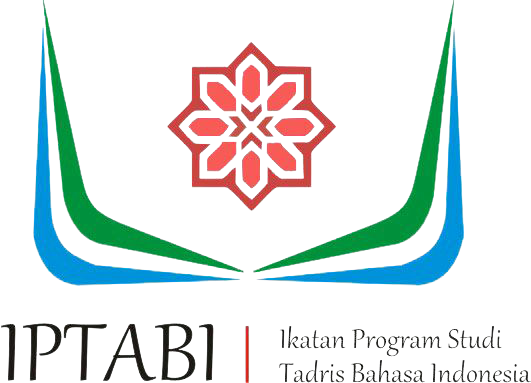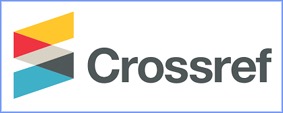Tindak Tutur Ilokusi pada Jual Beli di Pasar Karangpucung Kabupaten Cilacap
DOI:
https://doi.org/10.29240/estetik.v4i2.3029Keywords:
language, speech act, illocutionary, buying and sellingAbstract
The purpose of this study is to describe and analyze the forms of illocutionary speech acts that exist in the buying and selling process at Pasar Karangpucung, Kabupaten Cilacap. This research is a qualitative research with descriptive method. The Data collection technique in this study was the recording technique. Then, the source of the data came from the record obtained in the buying and selling process in the Pasar Karangpucung, Kabupaten Cilacap. The result of the study found five forms of illocutionary speech acts in the form of assertive speech acts, directive speech acts, commissive speech acts, expressive speech acts, and declarative speech acts. The form of speech found in the form of stating, informing, mentioning, indicating, asking, suggesting, imploring, prohibiting, promising, swearing or convincing earnestly, thanking, complaining, apologizing, giving an apology, and the last one creating a new atmosphere or situation
Downloads
References
Abidin, Y. (2019). Konsep Dasar Bahasa Indonesia. Jakarta: Bumi Aksara.
Azizah, A., Mustika, I., & Primndhika, R. B. (2020). Analisis Tindak Tutur Caption dalam Instagram Ridwan Kamil. Parole: Jurnal Pendidikan Bahasa Dan Sastra Indonesia, 3(3), 229–242.
Chaer, A., & Agustina, L. (2010). Sosiolinguistik. Jakarta: Rineka Cipta.
Hajija, S., Suryadi, & Djunaidi, B. (2017). Tindak Tutur Ilokusi Guru Bahasa Indonesia Pada Proses Pembelajaran di Kelas XI IPA 1 SMAN 9 Kota Bengkulu. Jurnal Ilmiah Korpus, 1(2), 210–2017.
Indrayanti, N., Haryadi, & Baehaqie, I. (2019). Tindak Tutur Ilokusi dalam Wacana Naskah Drama Deleilah Tak Ingin Pulang Dari Pesta Karya Puthu E.A. Jurnal Sastra Indonesia, 8(1), 62–67.
Masruddin. (2015). Sosiolinguistik. Sulawesi Selatan: Read Institute Press.
Megawati, E. (2016). Tindak Tutur Ilokusi pada Interaksi Jual Beli di Pasar Induk Kramat Jati. Deiksis, 08(02), 157–171.
Meirisa, Rasyid, Y., & Murtadho, F. (2017). Tindak Tutur Ilokusi dalam Interaksi Pembelajaran Bahasa Indonesia. Jurnal Pendidikan Bahasa Dan Sastra, 16(2), 1–14.
Nurdjan, S., Firman, & Mirnawati. (2018). Bahasa Indonesia Untuk Perguruan Tinggi. Aksara Timur.
Pradana, G. (2020). Tindak Tutur Ilokusi dalam Cuitan Akun Twitter Gubernur Jawa Tengah Ganjar Pranowo. Jurnal Metabahasa, 3(2), 9–22.
Rahma, A. N. (2018). Analisis Tindak Tutur Ilokusi dalam Dialog Film Animasi Meraih Mimpi. Skriptorium, 2(2), 13–24.
Sagita, V. R., & Setiawan, T. (2019). Tindak Tutur Ilokusi Ridwan Kamil dalam Talkshow Insight di CNN Indonesia. Lensa: Kajian Kebahasaan, Kesusastraan, Dan Budaya, 9(2), 187–200.
Sherry, H., Agustina, & Juita, N. (2012). Tindak Tutur Ilokusi dalam Buku Humor Membongkar Gurita
Cikesa Karya Jaim Wong Gendeng dan Implikasinta dalam Pembelajaran Bahasa Indonesia. Jurnal Pendidikan Bahasa Dan Sastra, 1(1), 1–86.
Stampol, R., & Ramadhan, S. (2019). Tindak Tutur Ilokusi Pendakwah dalam Program Damai Indonesia di TV One. Jurnal Kajian Bahasa, Sastra Indonesia, Dan Pembelajarannya, 3(2), 250–260.
Sugiyono. (2020). Metode Penelitian Kualitatif. Bandung: Alfabeta.
Suryanti. (2020). Pragmatik. Klaten: Lakeisha.
Wahyudi. (2012). Jenis dan Tindak Tutur Dosen dalam Interaksi Pembelajaran Bahasa Arab di UIN Malang. Thaqafiyyat, 13(2), 336–360.
Wahyuni, S. T., Retnowaty, & Ratnawati, I. I. (2018). Tindak Tutur Ilokusi pada Caption Akun Islami di Instagram. Basa Taka, 1(2), 11–18.
Wibowo, W. (2009). Menuju Jurnalisme Merdeka Peran Bahasa, Bsianis, dan Politik di Era Mondial. PT Kompas Media Nusantara.
Wijana, I. D. P. (1996). Dasar-dasar Pragmatik. Yogyakarta: Andi Offest.
Downloads
Published
How to Cite
Issue
Section
Citation Check
License
Copyright (c) 2021 Risna Windika Cahyani, Cintya Nurika Irma, Mulasih Mulasih

This work is licensed under a Creative Commons Attribution-NonCommercial-ShareAlike 4.0 International License.
Authors who publish with ESTETIK : Jurnal Bahasa Indonesia agree to the following terms:
- Authors retain copyright and grant the journal right of first publication with the work simultaneously licensed under a Creative Commons Attribution-NonCommercial-ShareAlike 4.0 International License (CC BY-NC-SA 4.0) that allows others to share the work with an acknowledgment of the work's authorship and initial publication in this journal.
- Authors are able to enter into separate, additional contractual arrangements for the non-exclusive distribution of the journal's published version of the work (e.g., post it to an institutional repository or publish it in a book), with an acknowledgment of its initial publication in this journal.
- Authors are permitted and encouraged to post their work online (e.g., in institutional repositories or on their website) prior to and during the submission process, as it can lead to productive exchanges, as well as earlier and greater citation of published work (See The Effect of Open Access).






